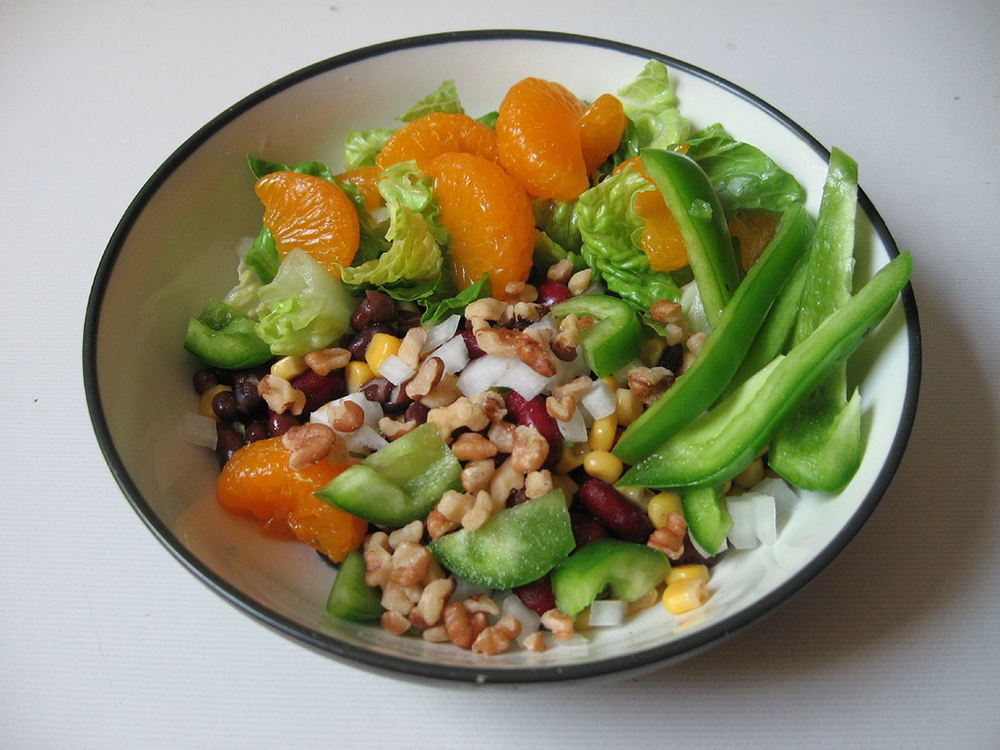Several people in my life have started the vegan diet at one point or another. Although not all have stayed with the diet for long, a few have. Despite loving them dearly and considering them as some of my closest friends, I do not believe this is a positive choice. I have no problems with vegans or vegetarians as people, however, I do have a problem with the diet, especially if executed poorly.
The reason for choosing this path varies from person to person. Whether the harsh, cruel treatment against animals or a decision to achieve weight loss brought the person to veganism, the results are the same — it can easily create health deficiencies.
VITAMIN DEFICIENCY
Vegan diets do not provide the fat-soluble vitamins A and D, according to nutritional therapy practitioner Lauren Geersten on her Empowered Sustenance website. Many people believe vegetables, such as carrots, provide Vitamin A. This is a myth. Two types of vitamin A exist — retinoids and carotenoids, according to Geersten. Our bodies easily digest retinoids, but these are found only in animal products. Plants supply only the carotenoid vitamin A which, unfortunately, cannot be digested by our body without first being converted to retinoids. This poses a problem because it takes six units of carotenoids to convert into one unit of retinoids. To put this in perspective, one must eat four and a half pounds of carrots to get the same amount of useable vitamin A that 3 oz. of beef would give you.
Vegan diets do not support vitamin B12 or vitamin K2, according to certified personal trainer Kris Gunnars on his Authority Nutrition website. B12, a water soluble vitamin, cannot be found in any plants. This vitamin is important for every cell in the body, particularly for blood formation and brain function. A total of 92 percent of vegans have a B12 deficiency. Vitamin K2 is the shuttle that transports the much needed calcium to your bones, and can only be found in fatty sources, according to Gunnars. The exception to this rule is natto, a fermented soybean product. Unfortunately, the majority of humans and animals find natto repulsive to eat.
Just like Vitamin A, there are two types of iron — heme and non-heme, according to National Institutes of Health. Heme, which is easily digested, makes up about 40 percent of the iron in animal foods. Plants only contain non-heme iron, which the body does not absorb as well. If not watched carefully, lack of protein can also be an issue. Many plant based products, such as soy and lentils, have protein, but protein must then be consumed at every meal, according to Huffington Post.
POTENTIAL CAUSE FOR HORMONE IMBALANCE
Vegan diets rely heavily on soy since veganism lacks the animal protein, vegans have replaced soy as their main protein source, according Geersten. Unfortunately, soy contains a high amount of phytoestrogen content, according to Tulane University’s e.hormone website. Phytoestrogen mimics the estrogen in the body, causing hormonal imbalances, which can also prevent fertility and cause longer menstrual cycles.
I could easily say, “Do not go on the vegan diet,” but many will anyway. I urge those of you who choose the vegan path to do it properly and safely. Use B12, K2, iron and vitamin A and D supplements. Frequently visit your doctor to check your levels to ensure you do not have a deficiency. If you begin feeling unwell, go to the health food store, purchase a non-farm raised lean meat product and enjoy it. Your health is worth more than a diet.







